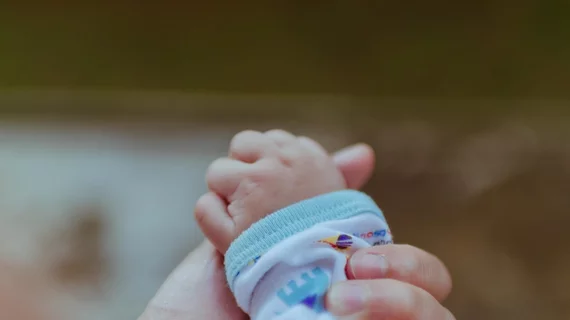In rare cases, maternal COVID infections can lead to serious brain injuries in neonates
A new report details rare instances of brain injuries seen in the neonates of mothers who contracted COVID during their second trimester of pregnancy.
Children included in the assessment displayed several concerning neurological MRI findings shortly after their birth, including acquired microcephaly, severe parenchymal atrophy and cystic encephalomalacia. Although the neonates did not test positive for COVID at birth, they were reported to have detectable SARS-CoV-2 antibodies and increased blood inflammatory markers at the time.
The findings were published April 6 in Pediatrics.
The analysis was small—consisting of just two subjects—and experts involved in the work maintain that their cases were extremely rare. However, combined with other recent research, including a study detailing placental abnormalities in pregnant women who contracted COVID, these results add to mounting evidence suggesting that the long-term ramifications of COVID exposure in utero can be serious.
“Long-term neurodevelopmental sequelae are a potential concern in neonates following in utero exposure to severe acute respiratory syndrome coronavirus disease 2 (SARS-CoV-2),” corresponding author of the new paper Shahnaz Duara, MD, from the Division of Neonatology at the University of Miami Miller School of Medicine, and colleagues explained.
The team noted that both neonates included in their analysis suffered early-onset (day one) seizures; one infant experienced sudden unexpected infant death at 13 months and the other went on to display long-term neurological damage on imaging and was in hospice care when the research team submitted their manuscript. That infant’s mother was said to have had an asymptomatic case of COVID.
In both cases, image findings showed “significantly increased inflammatory and oxidative stress markers to the fetoplacental unit that affected the fetal brain,” which the experts suggested was very likely attributed to maternal SARS-CoV-2 infection.
“In both infants, the neurologic findings at birth mimicked the presentation of hypoxic-ischemic encephalopathy of newborn and neurologic sequelae progressed well beyond the neonatal period,” the group noted.
The group also indicated that both COVID infections occurred late into the second trimester, but both pregnancies progressed well into the third trimester without any complications. This further reiterates their hypothesis that the COVID infections triggered the newborns’ neurological decline.
“These observations, combined with exclusion of a lengthy list of other possible causes of the clinical and pathologic findings, implicate SARS-CoV-2 as the etiology of the neurologic injury.”
In terms of future work, the team suggested that research should focus on the timing of maternal COVID infections and how that might affect placental inflammation and long-term neurological development.
Disclosure: These cases occurred early in the pandemic, before vaccines had been developed and deployed.
The study can be accessed here.

